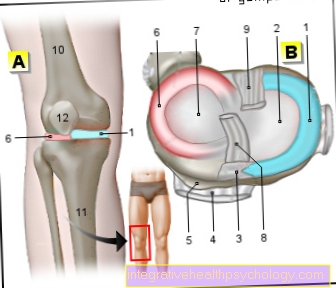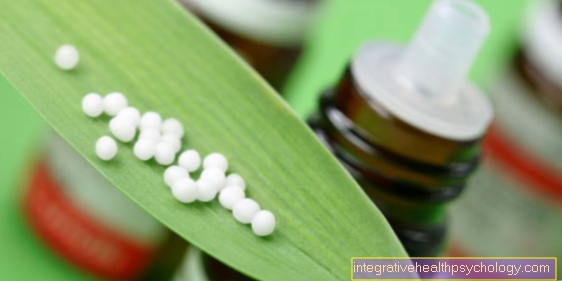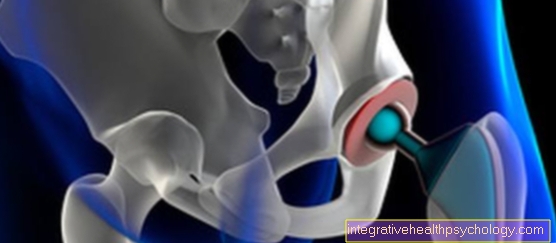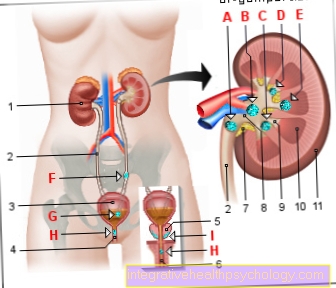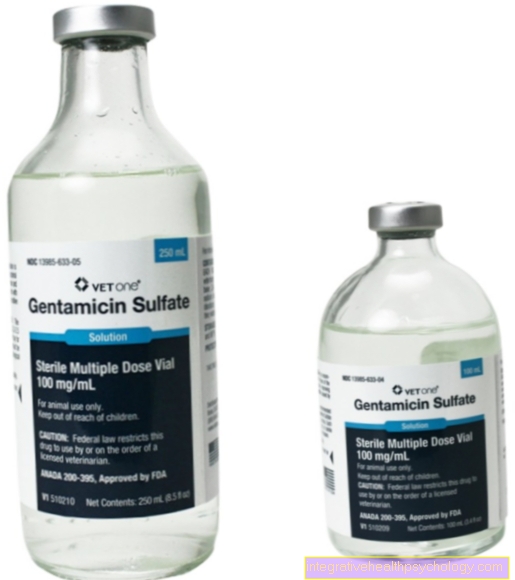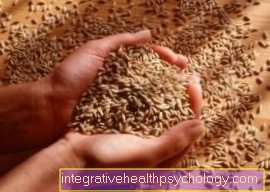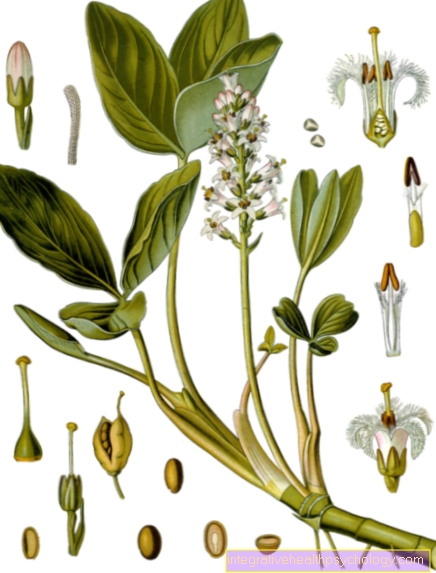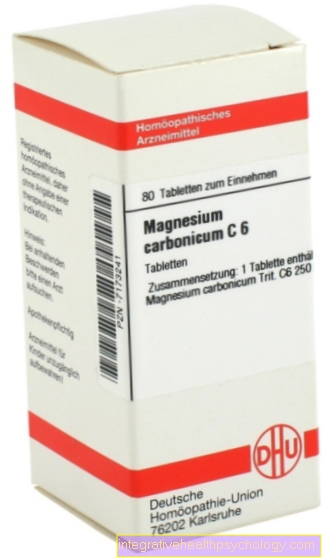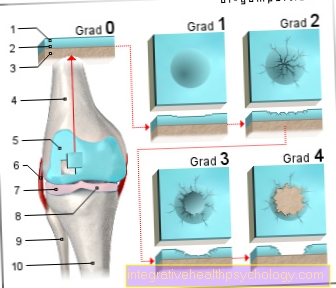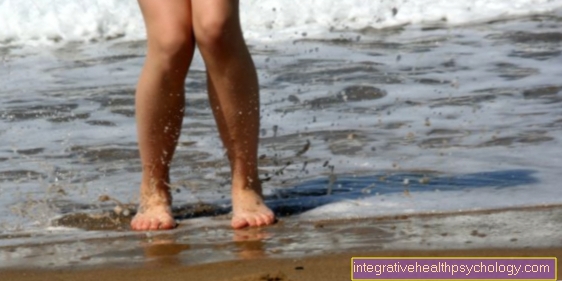Naturopathy for a cold
Synonyms
Rhinitis, cold, cold, runny nose, flu-like infection
Naturopathic therapy
Both naturopathic remedies and budget funds that have been passed on for ages are often used as an alternative to medicinal cold treatment to support the immune system and to prevent colds. The effectiveness is often controversial. Certain foods are said to have immune system strengthening and cold suppressing effects.
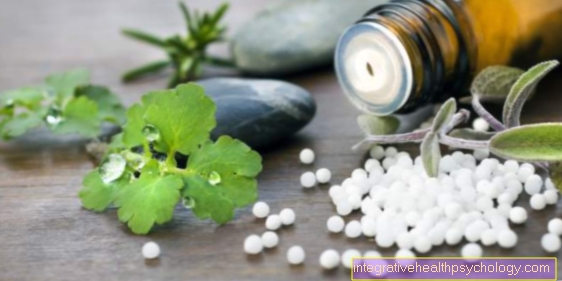
chicken soup e.g. should develop such an effect. Scientifically proven to have an anti-inflammatory effect. What exactly is responsible for this is not known. The recommendation that vitamin C stimulates the immune system and can avert a possible cold. It is undisputed that a Vitamin C deficiency the immune system weakens and makes it more susceptible to infections and thus also to a cold. But you shouldn't forget that nobody in Germany has a vitamin C deficiency with a normal lifestyle.
The vitamin C preparations, which are often offered for sale by the pharmaceutical companies, only help if there is an actual vitamin C deficiency. If there is no deficiency, the absorbed vitamin C is excreted unused.
From Nutritional supplements So one should refrain and rather get a vitamin C. nutrition pay attention to one Prevent colds.
Foods containing vitamin C are:
- tomatoes
- kiwi
- Paprika.
Also read the topic: Homeopathy for a sore throat
In addition, ginger is said to have a cold-relieving effect. Ginger can be made as a tea or soup and consumed once a day during the cold season. Numerous plants, prepared as preparations, are also said to have a cold-relieving effect. The South African Cape Pelargonium (Umckaloabo) is processed as drops used against colds and against inflammation of the upper respiratory tract. The actual healing effect is ascribed to the active groups contained therein, coumarins, flavonoids and tannins.
The sunhat (Echinacea) is a very old medicinal plant and is often used against colds, even if the exact mechanism of action is not yet clear. The area of application of chamomile and sage is known and is now also recommended by conventional medicine for flu-like infections. The essential oils of the thyme plant are also said to help with colds and reduce inflammation. The ivy is actually only known as a decorative plant in this country. However, very few people know that this plant has a disinfectant effect and also thins the thick mucus produced by the lungs. However, it should be ensured that the ivy plant is actually poisonous for humans and must not be taken pure. The so-called cowslip is also an old medicinal plant that is said to have anti-inflammatory effects and is mainly used in the treatment of coughs and colds. The cowslip is also said to have expectorant effects.
Also read the topics: Homeopathy for cough, homeopathy for fever
There is an interesting mechanism of action behind it:
After ingestion, certain substances from the cowslip irritate the gastric mucosa. Corresponding transmission via certain nerve fibers stimulates the production of mucus in the bronchi, which leads to a solution of the mucus stuck in the lungs. The effect on the stomach can occasionally lead to nausea and stomach pain as a side effect. A common component of coughs and cold teas is also the mallow plant, whose effect consists in the formation of a protective mucous membrane and is supposed to help against mucosal inflammation.
In particular, inflammatory changes in the upper respiratory tract, such as the mouth and throat, can be treated in this way. Despite the actually harmless-looking plants, the corresponding side effects should not be ignored. In order not to run the risk of poisoning, one should rather switch to herbal remedies from the pharmacy and not make one's own preparations from the plants growing outside. Certain interactions with other conventional medical drugs should also be taken into account and the interplay between conventional medicine and naturopathic effects should not be underestimated.
Read more on the topic: Homeopathy for colds
Additional information
- cold
- Common cold in babies
- Common cold home remedies
- Cold sauna
- Inhaling if you have a cold
- Common cold symptoms
- Cold Therapy
- Common cold cause
- Cold viruses
- Preventing a cold
- Difference cold flu
Other topics related to the common cold:
- flu
- Sore throat
- Lemocin
- sniff
- Runny nose / sore throat
- to cough





